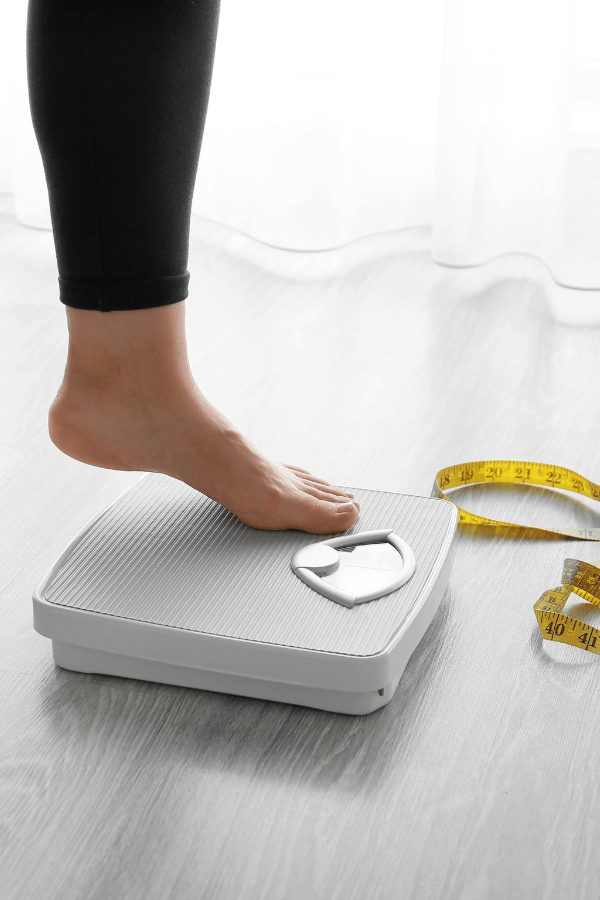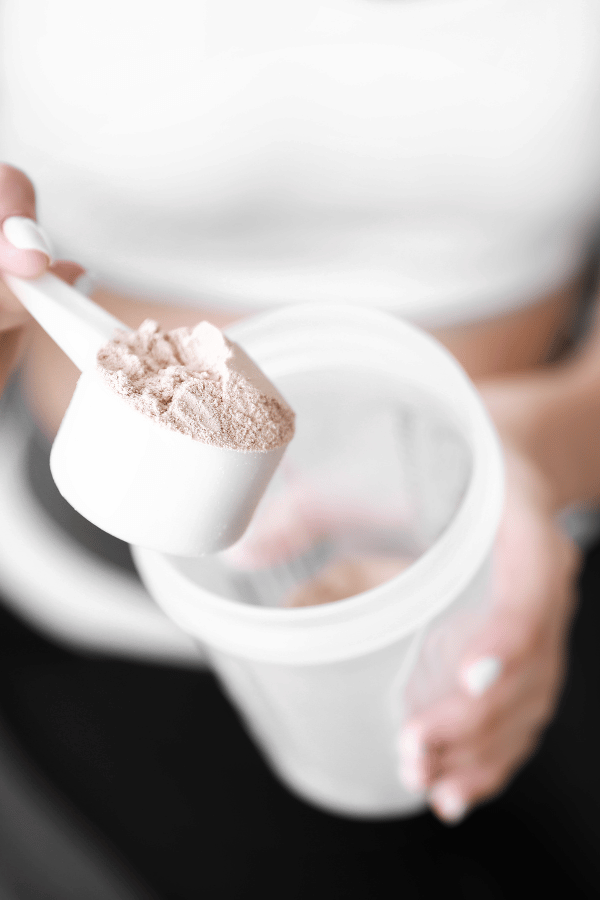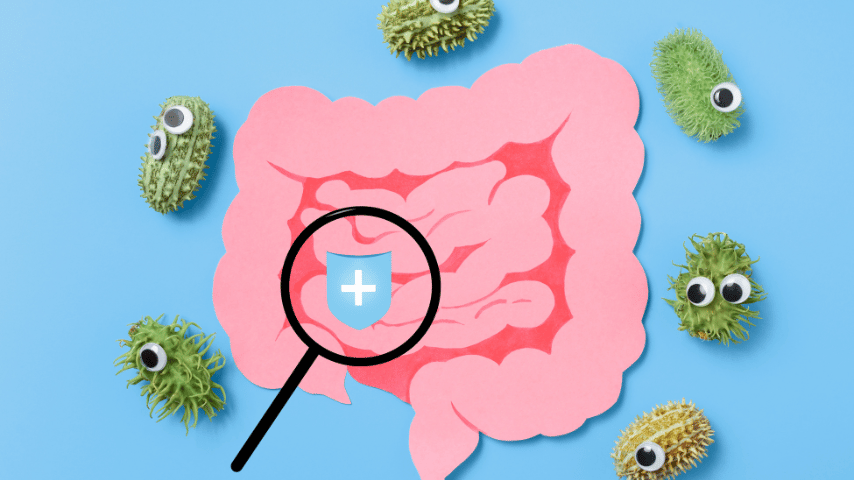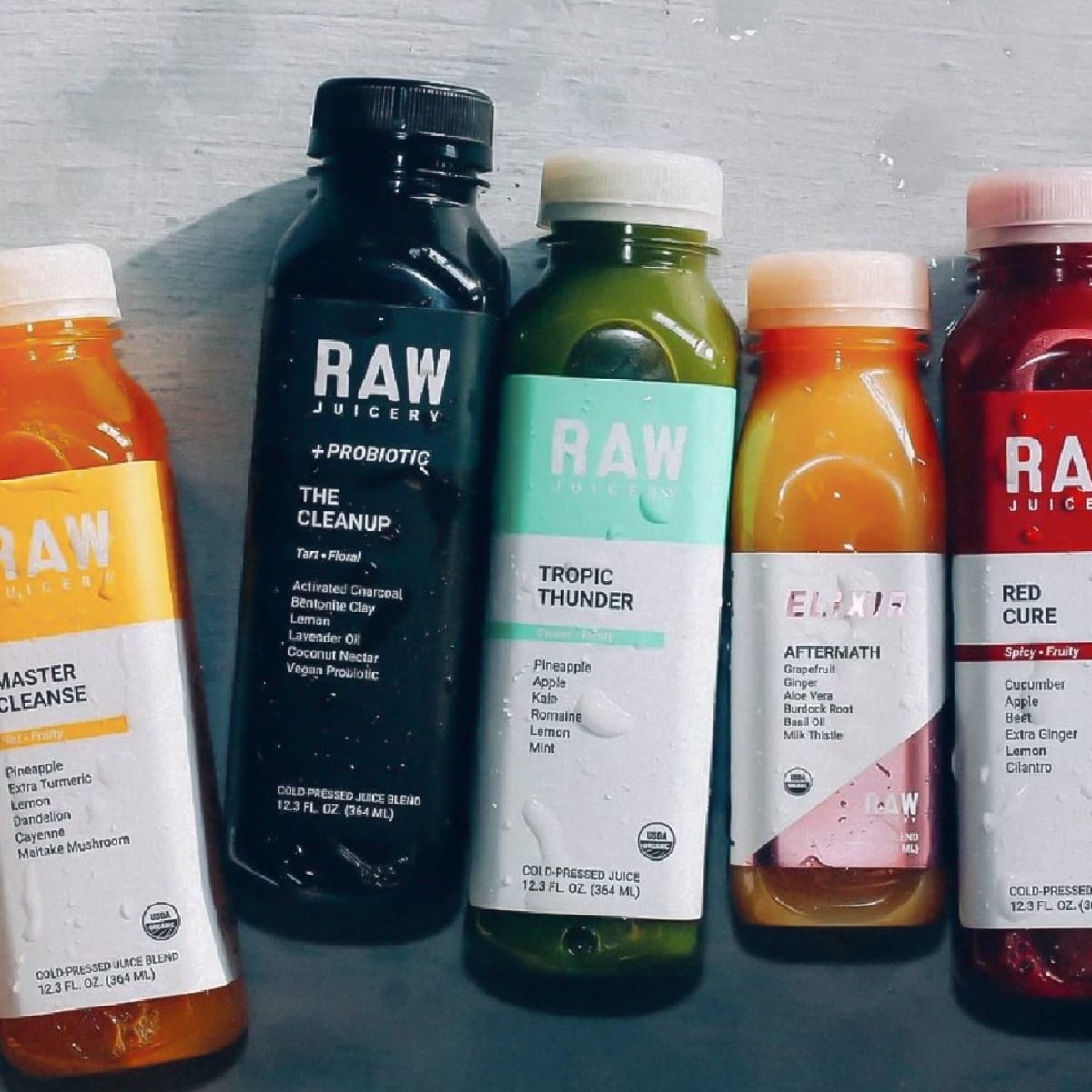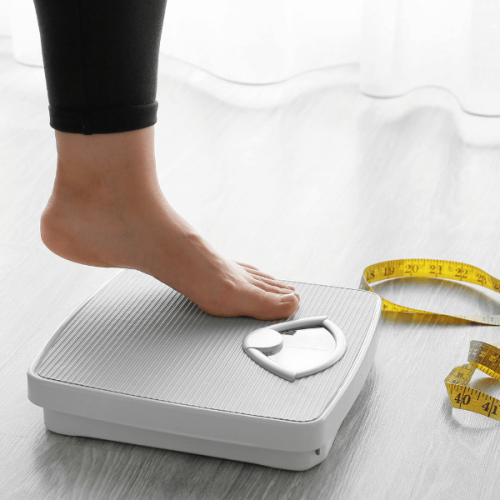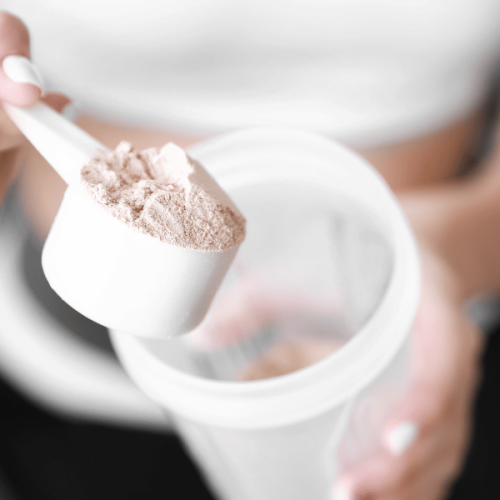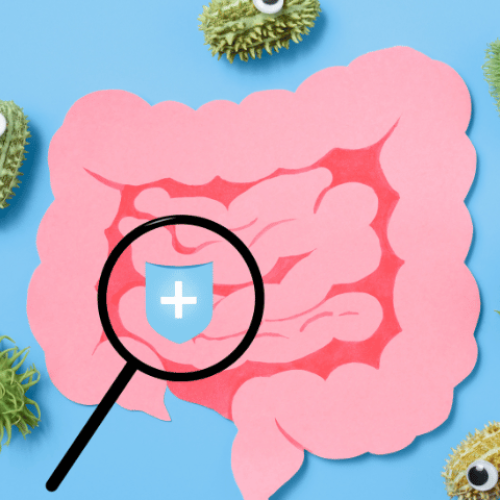For adults and children, fruit juice consumption had been declining for years based on recommendations to lower sugar intake to help manage weight and prevent cavities. However, over recent years fruit juices are back, having their MOMENT! There have been so many new launches of organic, cold-pressed, exotic, wellness juices populating grocery stores breathing new life into this category.
These new juices claim a variety of benefits from body detoxification and weight loss, to improving gut health and more. But are wellness juices a healthy choice or are they another diet culture trend?
In this post we’ll cover:
- Wellness juice trends
- The benefits of wellness juices
- The cons of wellness juices
- My opinion
- Amare Happy Juice™ review
Wellness juice trends
Juices are distinguished from each other based on how they’re processed.
Traditional processing of juice uses heat pasteurization to destroy the bacteria and pathogens in the juice and increase its shelf life. However, traditional processing can also alter the chemical properties of juices such as affecting the colour or smell of the juice or reducing the amount of vitamin C. Due to the growing popularity of consuming more minimally processed foods as close to their “natural” state as possible, a new age of juices was born.
Organic: includes fruits and vegetables from farmers who don’t use most conventional pesticides and fertilizers made with synthetic ingredients (they use organic pesticides and fertilizers – but that’s a whole other blog post for another day).
Cold-Pressed: entails processing juice using the high pressure of a hydraulic press to extract juice from fruits and vegetables at low temperatures so heat doesn’t destroy the nutrients. Cold-pressed juices can be raw, or treated with HPP.
HPP: high-pressure pasteurization is a method to process fruits and vegetables under high pressure, without heat. It helps to lower the risk of foodborne illness by killing bacteria and pathogens and also gives a longer shelf-life than raw juice.
Raw: juice that can be cold-pressed but has not been treated for pathogens via heat or pressure. It has a short shelf life and can present a risk for food-borne illness, especially for the immunocompromised like pregnant women, older adults and children.
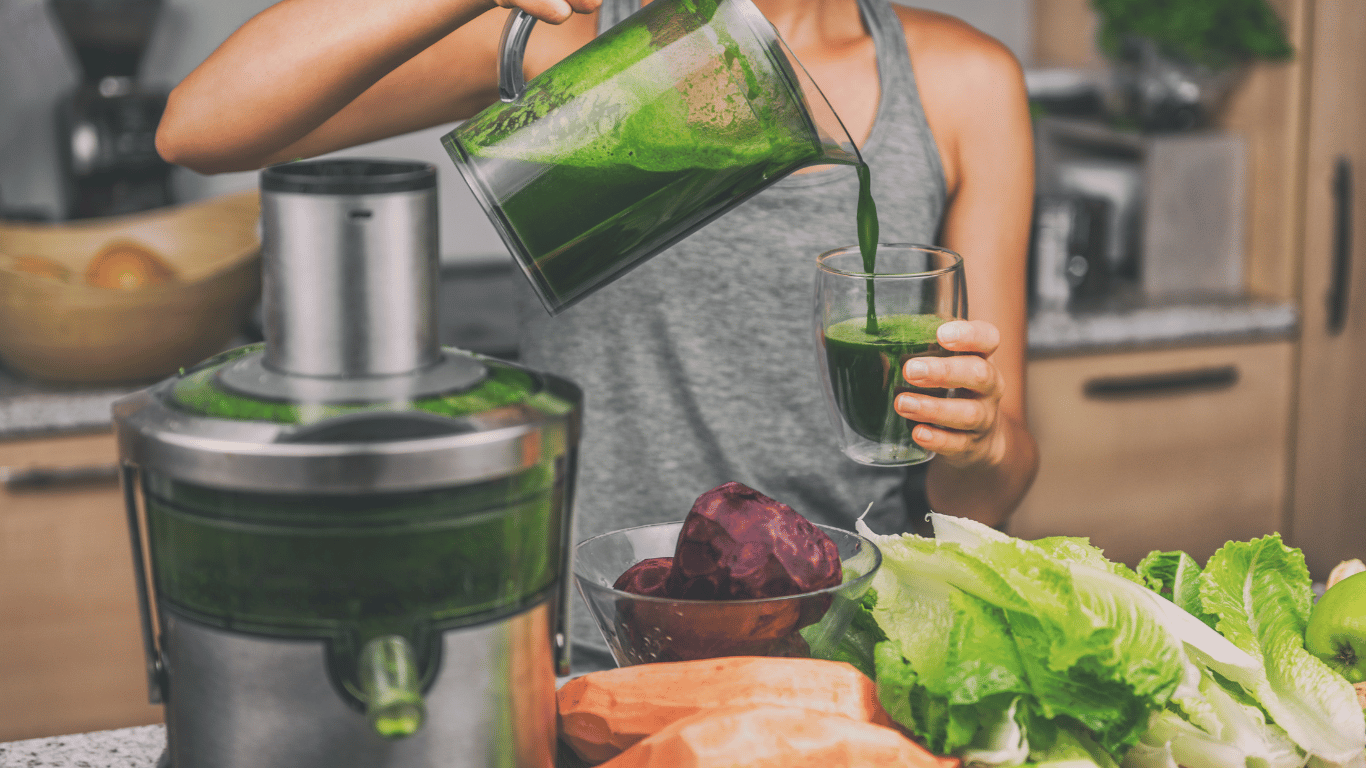
The benefits of wellness juices
There is a LARGE body of evidence showing an association between a diet rich in whole fruits and vegetables and reduced risk factors for a variety of chronic diseases such as cardiovascular disease (CVD), several common cancers, and age-related degeneration.
Since juices made of fruits and vegetables contain most of the vitamins, minerals, and phytonutrients of the same whole fruits and vegetables, we know that juices can also play a role in offering nourishment to our bodies.
Claims have been made that consuming wellness juices is healthier than eating whole fruits and vegetables because they’re richer in nutrients and easier to digest, however, there is no evidence suggesting juicing is superior to consuming whole fruits and vegetables. Drinking juice can be a part of a well-balanced diet, hopefully alongside eating fruits and vegetables.
The cons of wellness juices
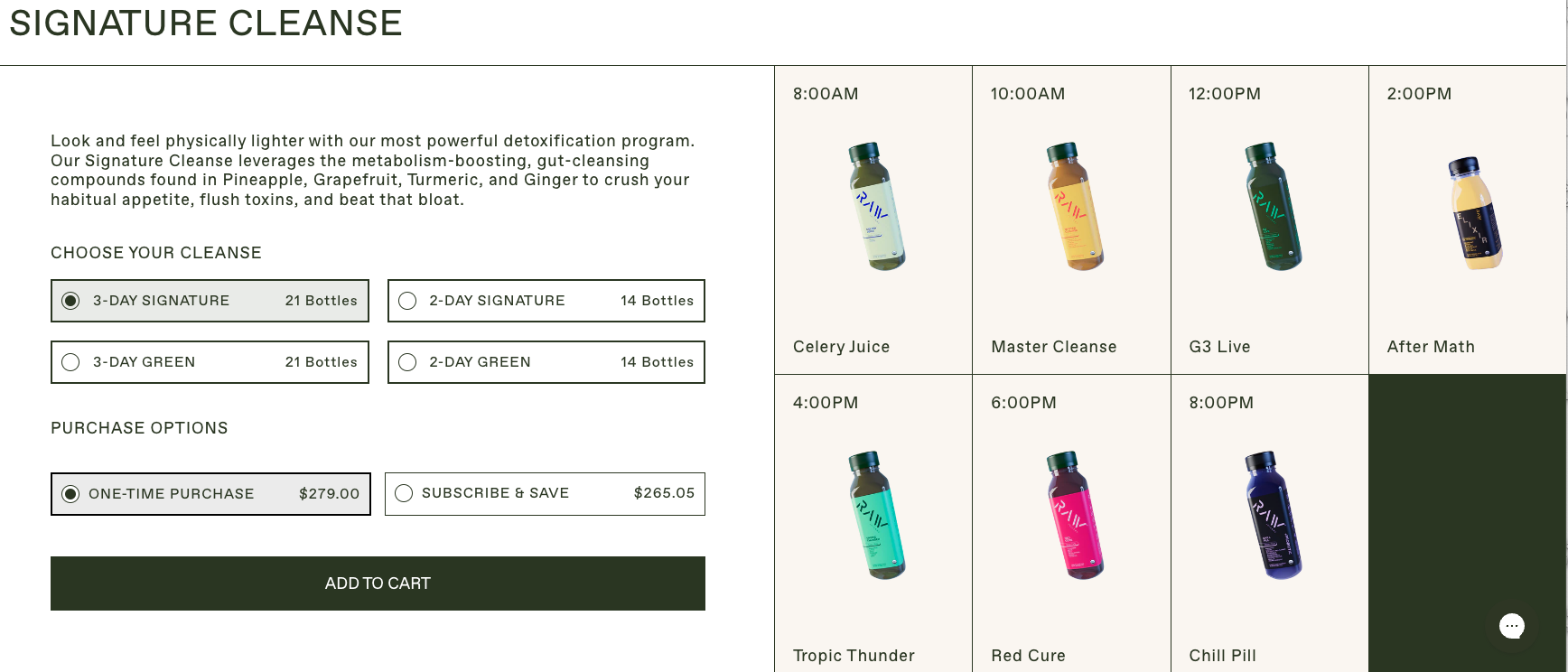
Juicing cleanses, like the one shown in the picture above from Raw Juicery, are problematic and can be dangerous. Yes, when you starve your body of the nourishment it needs you will “feel lighter“, but feeling lighter and becoming healthier are not synonymous. Juices are not miracles in a bottle that will help to uniquely boost your metabolism, melt away belly fat or detoxify your organs. The fact that it’s legal for companies to put this on websites to sell products is appalling – but that’s the world we live in right now.
- The juicing process extracts most of the fibre content (~90%). Fibre intake is crucial for our health and has been shown to reduce the risk of CVD, obesity and certain types of cancer.
- Consuming juice on its own can result in elevated blood sugars as juices are low in fat, protein and fibres which help balance blood sugars.
- Raw, unpasteurized juices can be contaminated with harmful bacteria such as salmonella, E. coli, and cryptosporidium parasites.
- Regularly consuming a high intake of fruit juices has been associated with an increased risk of type 2 diabetes and obesity.
- Juicing diet cleanses or detoxes can be dangerous and lead to a variety of nutrient deficiencies, as well as diarrhea, nausea, dizziness and fatigue.
- Juices lack healthy fats, protein and fibre which are our top 3 satiating nutrients, so drinking juice alone can leave you feeling hungry and irritable.
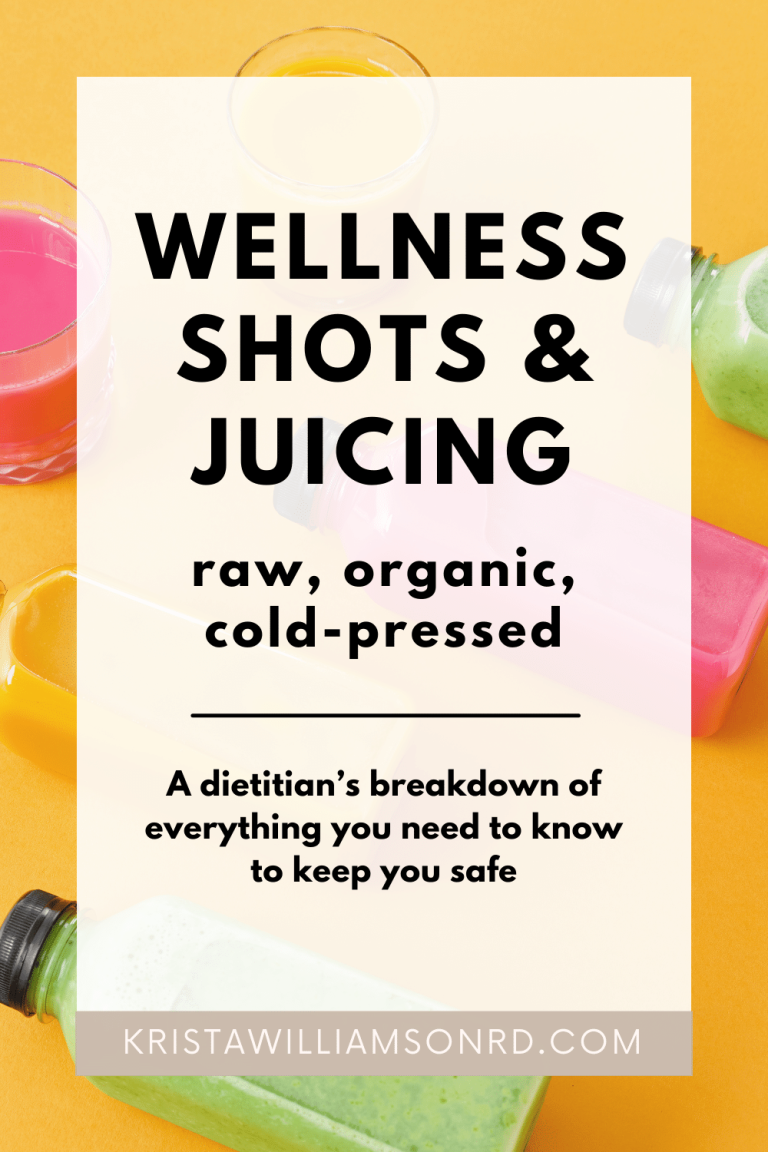
My opinion(s)
- My main issue with the juicing trend is magical thinking. Juices are unfortunately not miracles in a bottle to help you lose weight or detox your body, however, there’s likely no danger in consuming most juices as part of a healthful, well-balanced diet.
- Drinking juice is not superior to eating whole fruits and vegetables but can be a very beneficial choice for a person who dislikes fruits and vegetables or as a convenient option to give your body nourishment when you’re on the go.
- When consuming juices, pair them with a well-balanced meal to help keep you feeling more full and satisfied and to avoid a large spike in your blood sugars.
- If you are making your own juice at home, make only as much as you’ll drink at once. Harmful bacteria can grow quickly in fresh-squeezed juice.
- If you buy a commercially produced cold-pressed juice, I suggest avoiding raw juice and choosing one that is pasteurized or treated with HPP to reduce your risk of illness.
- Lastly, there is nothing wrong with choosing regular old 100% juice. Try to limit your intake of juice cocktails and blends.
Amare Happy Juice™ Review
I was asked to share my thoughts on this product, so let’s get started!
The Happy Juice is a combination of 3 products (genius marketing): Mentabiotics, Energy+ and Amare EDGE.
Here are the claims, directly from their website:
- “One drink to elevate your mood, crush your to-do list, and enjoy every minute of the day!”
- “Unique proprietary blend”
- “We combine ancient natural wisdom with modern scientific innovations to develop all-natural mental wellness products that support vigor, happiness, stress resilience, mental performance, and whole-body wellness.”
- “Nutrients for your gut that will make your microbiome smile, from the inside out.”
- “Not been evaluated by the FDA. (Plus notice all of the “*” after each claim listed below).
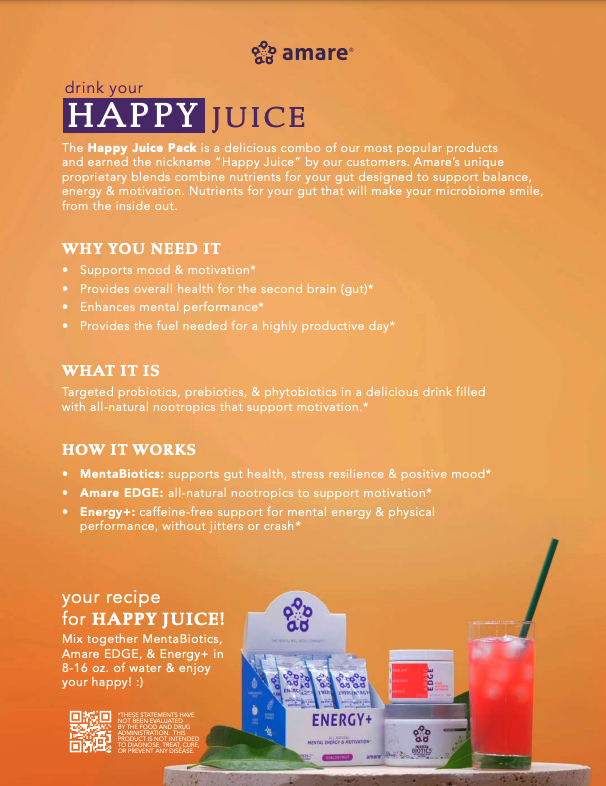
The Amare science
So I checked out the science to support their claims – but the science is not sciencing.
The majority of the studies shown on their site to ‘support’ this product are not done on these products themselves. They are either animal or cell studies or journal articles about the efficacy of an ingredient used in the product. It’s BAD science and I despise how companies like this make billions of dollars off of total BS claims. They want you to think their product is better and put a ton of science-y jargon on their site to sound believable.
Mentabiotics is a proprietary blend of probiotics, prebiotics, and digestive enzymes.
Energy+ is a caffeine supplement.
Amare EDGE claims to boost mood, motivation and metabolism based on a proprietary blend of vitamins and plant extracts. However, to anyone reading this, be aware of PROPRIETARY BLENDS. Without having detailed information about ingredients and their quantities, it’s difficult to assess the potential benefits AND the risks.
Some of the ingredients used in these products could be efficacious, however, the claims listed on their website on whether Happy Juice is effective for adults are not proven.
[Sorry if I sound like a hater – I just wish we lived in a world where there was more regulation on “health” products so companies like this didn’t take so much of people’s hard-earned money until they had real results.]
PLEASE NOTE:
I’d love to know if this was helpful to you! All blog posts are written for general nutrition improvement and should only be used as a guide. This article is intended for educational purposes only and is not designed to diagnose, treat, prevent or cure any condition. It is not specific advice for any individual. Before adding supplements to your regimen, please speak to your healthcare professional.

